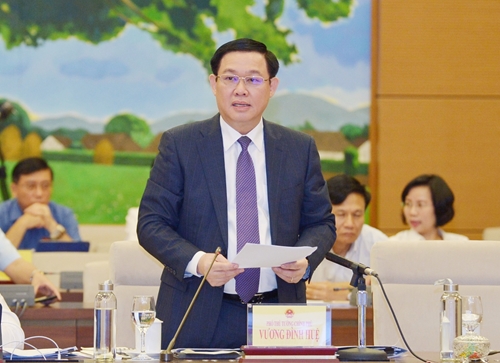“A magnificent dyke can collapse due to small colonies of termites,” Hue said at the end of the question-and-answer session, stressing the serious impacts of petty corruption.
According to the deputy PM, the problem is connected with working ethics of public servants and employees, causing angry among the public.
Petty corruption undermines the trust of the people and enterprises, as well as raises unofficial costs for them, he said.
    |
 |
|
Deputy Prime Minister Vuong Dinh Hue addresses the event |
Deputy PM Hue presented solutions to the problem, first of all perfecting the legal system on economic management, ensuring consistency and clarity without overlapping.
The second solution is to perfect regulations on rules and procedures of the responsibilities for public work and work ethics, especially the responsibility for the top manager, while accelerating administrative reform towards transparency.
Thirdly, the government will strengthen the contingent of officials and public servants through improving personnel planning, training, appointing and job rotating.
Fourthly, more efforts will be made to raise the public’s awareness of law and promote the rule-by-law spirit both among the suppliers and recipients of public services.
The Deputy PM also answered questions on the delay in drafting legal documents, policies and resources for socio-economic development programmes targeting mountainous and minority ethnic regions, and the Government’s investment in transport infrastructure in the Mekong Delta.
Deputy PM Hue was the last Government member to go before the National Assembly Standing Committee during the question-and-answer (Q&A) session on August 15 at its ongoing 36th meeting in Hanoi.
Fourteen ministers and the Chief Justice of the Supreme People's Court were asked about issues under their management.
Source: VNA